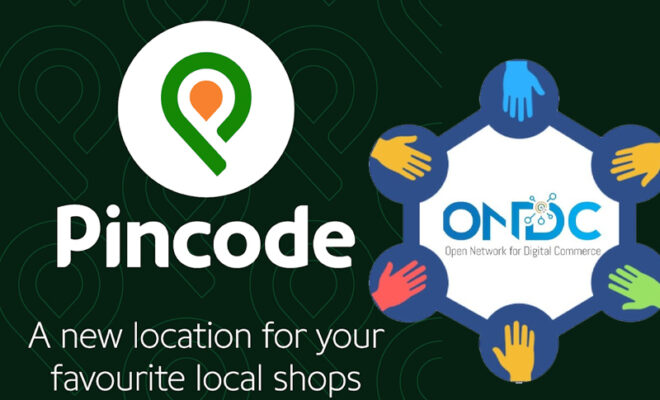PhonePe Launches e-Commerce App PinCode On ONDC

PhonePe has launched its hyperlocal commerce app Pincode, built on the ONDC protocol, in Bengaluru. Pincode enables local stores to connect digitally with customers.
With the help of the government-supported ONDC (open network for digital commerce) protocol, PhonePe has entered the hyperlocal commerce space with its purchasing app Pincode. Pincode is now available in Bengaluru and will soon be available in additional locations.
With the use of the Pincode app, local businesses in Bengaluru will be able to connect with customers online and provide conveniences like online ordering, discounts, and quick refunds and returns.
The app will be tested with grocery, food, pharmaceuticals, electronics, and home decor in Bengaluru.
The CEO and founder of PhonePe, Sameer Nigam, referred to it as the UPI moment for e-commerce and a paradigm change in developing an Indian company’s first worldwide offering.
“Pincode is a brand-new e-commerce app that offers a ground-breaking new method of doing business, placing all local retailers and sellers at the center of the development of online buying.
Based on ONDC, it is anticipated to open up new potential for e-commerce innovation and growth.”
In addition to helping local buyers and sellers, the ONDC model is anticipated to help participants in last-mile logistics and inventory control.
The 2015-founded phone app PhonePe has 45 crore registered users. Currently, one in four Indians use PhonePe.
In 2017, it began offering banking services. ODC is the upcoming big thing, according to Infosys co-founder and chairman Nandan Nilekani, who was present at the Pincode launch. E-commerce will be made more democratic in India.
Any provider, such as kirana stores, grocery merchants, electronics retailers, small vendors, and eateries, is welcome to engage in the e-commerce marketplace on an open basis, he said.
He emphasized the significance of developing an architecture that enables small shops to engage in online shopping. “The notion of rapid commerce would be conceptualized differently with ONDC,” he continued.
Nilekani claimed that he is frequently questioned about promoting digital inclusion at scale abroad.
“ONDC demonstrates how we can accomplish this. We have some qualities, he said: a common goal, technology used at a large scale, technology used to be inclusive, technology used at a reasonable cost, and technology available to everybody.”
According to Nilekani, India has had about eight million point-of-sale (PoS) devices since gaining independence.
Yet, we’ve noticed that India has roughly 50 million QR codes in the previous three years. This is an illustration of how payment interoperability might accelerate in India,” he continued.
Also Read:- Google Takes Away Laptops, Staplers And Other Stuffs From Its Employees



